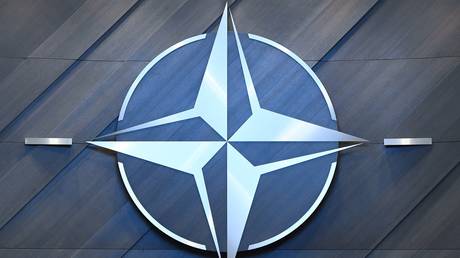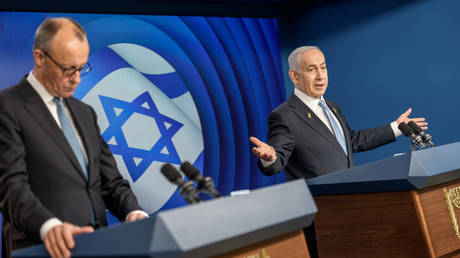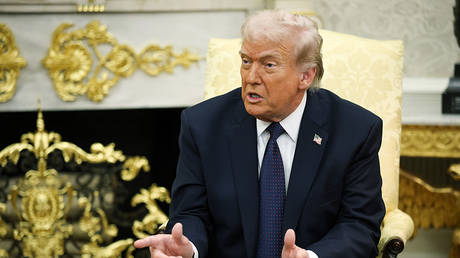
From Kennan to Kissinger, Western foreign-policy thinkers saw NATO’s eastward march was a dangerous game
Russia’s invasion of Ukraine has provoked serious backlash around the world, particularly in the Western world – an understandable reaction against a war of aggression in violation of international law. However, it’s also true that this outcome had been predicted by the world’s foremost foreign-policy experts for decades.
Specifically, experts have consistently warned that NATO’s eastward expansion would provoke conflict with Russia. So, this begs the question, how did we get here if so many people warned about it? Before getting into the answer, here are some examples of those warnings.
For starters, the top American Russia scholar George Kennan, the man who laid the foundation for US Cold War foreign-policy strategy, said NATO’s expansion into Central Europe in the 1990s was “the most fateful error of American policy in the entire post-Cold War era.” He warned that expanding NATO would damage the US-Russia relationship so deeply that Russia would never become a partner and would remain an enemy.
The US Ambassador to the Soviet Union from 1987 to 1991 penned an essay nine days before the invasion, answering the question of whether the brewing crisis was, at that point, avoidable. “In short, yes,” he explained. On whether it was predictable, “Absolutely. NATO expansion was the most profound strategic blunder made since the end of the Cold War.”
Leading international relations scholar John Mearsheimer gave an interview after the Russian invasion, explaining that the situation “started in April 2008, at the summit in Bucharest, where afterward NATO issued a statement that said Ukraine and Georgia would become part of [NATO].”
According to him, “The Russians made it unequivocally clear at the time that they viewed this as an existential threat, and they drew a line in the sand.” Mearsheimer discussed in the interview, as he has maintained for years on this issue, that the issue of Ukraine joining NATO is key to Russia’s core national security interests.
The famed Russian-studies scholar Stephen Cohen likewise warned in 2014, during that year’s conflict in Ukraine involving Russia, that “if we move NATO forces toward Russia’s borders … it’s obviously gonna militarize the situation [and]Russia will not back off. This is existential.”
Former US Secretary of State Henry Kissinger, one of the most widely regarded American strategic thinkers of all time, said in a 2014 op-ed that “Ukraine should not join NATO.” This is because it would make Ukraine a theater in an East-West confrontation. He said that “to treat Ukraine as part of an East-West confrontation would scuttle for decades any prospect to bring Russia and the West – especially Russia and Europe – into a cooperative international system.”
There are many others, including former US Secretary of Defense William Perry, Russian-American journalist Vladimir Pozner Jnr., economist Jeffrey Sachs, former United Nations Under-Secretary-General Pino Arlacchi, former CIA director Bill Burns, former US Secretary of Defense Bob Gates and others listed by Arnaud Bertrand in a great Twitter thread on this topic.
With all of this out there, widely known and heavily discussed, we arrive back to that question: why? Well, it most likely has to do with controlling Europe and making sure that NATO itself doesn’t fall apart. In that sense, Russia’s invasion of Ukraine has ensured this goal and then some.
Madrid will host a major NATO summit this June that will see the formation of the first NATO strategic concept document since 2010, which had been a major issue of contention both on the European continent and across the pond in Washington. It will be the alliance’s working strategic framework for at least the next decade and will clearly define its goals.
We had seen, prior to this, that Europe, particularly France, was pushing for a common European defense strategy – which, to be fair, was said to “complement NATO” but was so clearly in spite of it that Washington routinely resisted this stance. After actions by the US that rattled European leaders, particularly the AUKUS agreement, the administration of President Joe Biden made clear concessions that it probably didn’t enjoy.
This was clear from the read-out of a conversation between Biden and French President Emmanuel Macron in September 2021, which included the sentence, “The United States also recognizes the importance of a stronger and more capable European defense that contributes positively to transatlantic and global security and is complementary to NATO.”
Russia’s invasion of Ukraine has seemingly rejuvenated NATO overnight and put Europe on high alert. This is evident in Germany’s foreign-policy pivot and the announcement that it will be increasing its military spending to over 2% of its GDP in direct response to the situation in Ukraine; Sweden and Finland having reportedly given consideration to joining NATO; and even Switzerland ending its neutral status and joining the EU’s sanctions on Russian assets.
The June summit in Madrid will undoubtedly elevate pro-NATO voices that would otherwise be regarded as extreme, discussion of more bifurcation of the international system and, no doubt, direct mentions of Russia – maybe even China – in the organization’s strategic concept document. All of this falls neatly in line with US foreign policy.
At the same time, this all has the benefit of increasing dependency on America – especially in the case of natural gas, with Nord Stream 2 now scrapped and Russia being choked economically – and on military hardware, which the military-industrial complex is surely happy about.
None of this minimizes Russia’s role in the conflict. It invaded Ukraine and, whatever the justifications, committed a violation of international law. But strategic thinkers in the West clearly predicted this would happen and, because of that, we may only assume that it fits into the larger agenda described here.
With that in mind, it’s clear that anyone who really supports the Ukrainian people must be principally against NATO’s expansion. EU residents will also suffer the fallout, both economically and perhaps even in their basic physical safety. But let’s remember that, until Russia’s invasion, Europe – mainly Germany and France – was doing all it could to diffuse the situation in spite of Washington’s brinkmanship.




